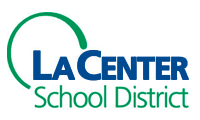Suicide Prevention/Behavioral Health Resources Page
National Suicide Prevention Hotline
988
or
1-800-273-TALK (8255)
Crisis Text Line
Text START to 741-741
to talk to a trained counselor. It’s free, confidential, and available 24/7.
Southwest Washington Crisis Line
(800) 626-8137 | TTY (866) 835-2755
- Suicide Prevention Resources
- Depression, Anxiety, or Counseling Organizations
- Eating Disorder Organizations
- Substance Abuse and Addiction Hotlines
Need Support Now? Call 988 for Suicide & Crisis Lifeline.
Clark County Crisis Services Program
https://www.clark.wa.gov/community-services/clark-county-crisis-services
Prevention Tips for Teens
http://www.nasponline.org/resources-and-publications/resources/school-safety-and-crisis/preventing-youth-suicide/save-a-friend-tips-for-teens-to-prevent-suicide
Suicide Facts and Prevention Tips
http://www.nasponline.org/resources-and-publications/resources/school-safety-and-crisis/preventing-youth-suicide
Tips for Parents
Naspo Tips for Parents and Educators
Youth Suicide Prevention Program/Networks for Life
yspp.org/training/networks_for_life.htm
SAMHSA’s National Helpline is a free, confidential, 24/7, 365-day-a-year treatment referral and information service (in English and Spanish) for individuals and families facing mental and/or substance use disorders.
Clark County Crisis Services Program
https://www.clark.wa.gov/community-services/clark-county-crisis-services
Are you looking to speak with someone about eating disorders concerns for yourself or a loved one? Please call our partner organizations’ Helplines:
- ANAD Helpline: 1 (888) 375-7767
Monday-Friday, 9am-9pm CT - National Alliance for Eating Disorders Helpline: 1 (866) 662-1235
Monday-Friday, 9am-7pm ET - Diabulimia Helpline: 1 (425) 985-3635
F.E.A.S.T provides support and education resources to parents and caregivers of loved ones impacted by eating disorders.
If you are in crisis, call or text Suicide and Crisis Lifeline: 988 [Spanish speaking services and for Deaf & Hard of Hearing]
Substance Abuse and Addiction Hotline Available 24/7 1-800-662-4357 – Free and confidential information in English and Spanish for individuals and family members facing substance use and mental health issues.
National Rehab Hotline Available 24/7 – 1-866-2101303 – Free, confidential helpline whose mission is to provide trusted behavioral health resources to those in need.
